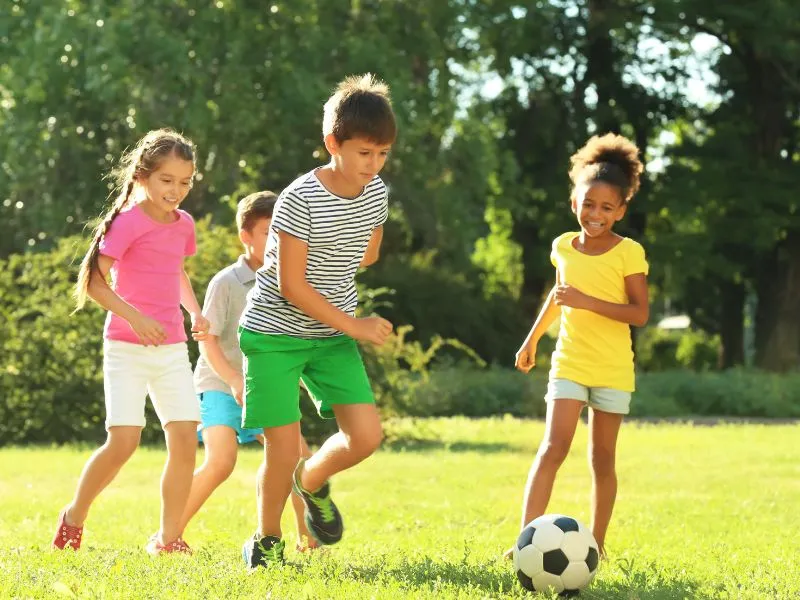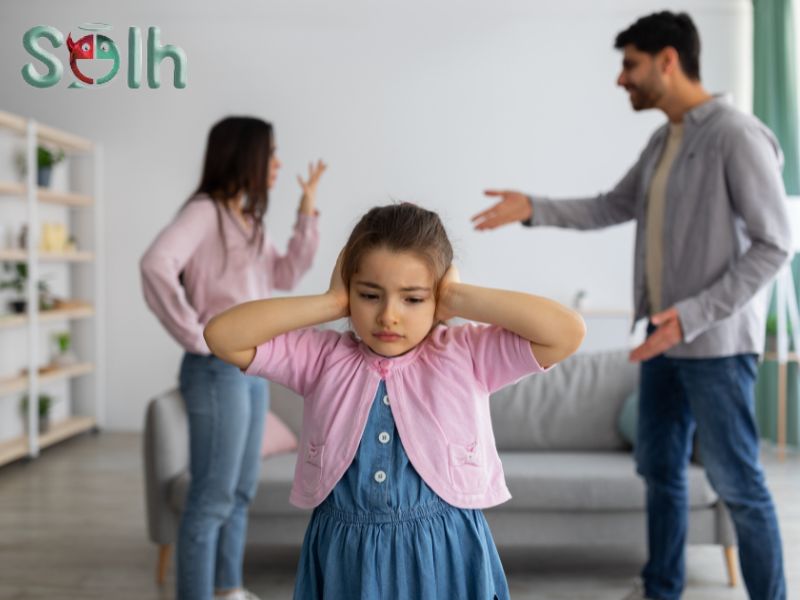Have you ever been in one of the situations where you experience trouble staying still and maintaining focus while navigating through a pool of thoughts and ideas? Or a situation where you felt brutally defeated because of the way your attention span betrays you at a time of dire need? Did your ability to manage your emotions and actions ever get disrupted?
In a world buzzing with constant activity, where attention is a fundamental aspect of productivity, there exists a phenomenon that affects the lives of millions- ADHD or Attention-Deficit Hyperactivity Disorder. ADHD is not just limited to frequent and easy distractions. It is the most common disorder affecting children's daily lives and lasting into adulthood. The aim of this blog is to provide a thorough understanding of what ADHD is and how one can know they have ADHD based on various symptoms. We will also uncover how one can deal with ADHD with therapy and medical intervention.
What is ADHD?
ADHD stands for Attention Deficit Hyperactivity Disorder . It is a mental condition characterized by difficulties in attention and self-control among individuals. ADHD is one of the most common disorders diagnosed in children, which can continue into adulthood. Often, people who have been diagnosed with ADHD as children may experience ADD (Attention Deficit Disorder). People with ADHD experience significant impacts on their academic, professional, and social functioning. People with ADHD often find it difficult to:
- Regulate their mood
- Concentrate
- Pay attention
- Stay still
ADHD is the most common disorder in children. It is spotted in their early childhood when children face difficulty paying attention to things. If left ignored and unaddressed, ADHD can have serious complications.
Note: Curiosity of the world and operating in the environment can be confused with ADHD among children. Remember that this world is a new space for your child, and every act of curiosity and knowing different things is NOT ADHD.
How to know if someone has ADHD: The prominent symptoms and types of ADHD
To identify whether an individual is diagnosed with ADHD, there are prominent symptoms that help identify this mental disorder. According to the American Psychiatric Association (APA), there are mainly three types of ADHD:
- Predominantly inattentive presentation.
- Predominantly hyperactive/impulsive presentation.
- Combined presentation.
As per APA, "Children who meet the diagnostic criteria for ADHD differ in their symptoms of hyperactivity, impulsivity, organization, and/or inattention." Children with ADHD are diagnosed based on persistent symptoms they experience over time. Individuals with ADHD experience different symptoms depending on the type of disorder. It is important to note that when determining if an individual is diagnosed with ADHD, he/she must have experienced difficulty and symptoms in more than one setting.
The following are the symptoms that can occur among individuals depending on their type of Attention Deficit Hyperactivity Disorder.
Predominantly inattentive presentation
ADHD symptoms with Inattentive presentation among children include the challenges they face with organizing and staying focused on a task. According to the The Diagnostic and Statistical Manual of Mental Disorders, Fifth Edition (DSM-5-TR), in a child with this disorder, at least six of the following behaviors are to be displayed to draw a diagnosis.
- Difficulty paying close attention to details or making careless mistakes
- Difficulty listening when spoken to as they seem to be elsewhere
- Facing challenges in staying focused on tasks and activities
- Difficulty in following instructions and completing tasks like schoolwork or job duties
- Finding difficulty with organizing tasks and work, like difficulty in managing time
- Forgetting daily tasks
- The ability to get distracted easily
- Preventing tasks that require some kind of mental effort
- Losing things often
Predominantly hyperactive/impulsive presentation
People with this disorder face difficulties in activities of their day-to-day lives. For identifying people with hyperactive/impulsive disorder, an individual must display at least six of the following symptoms frequently according to the DSM-5-TR:
- A tendency to frequently fidget with or tap one's hands and feet or squirm.
- Climbs or runs around where it is not appropriate.
- unable to play or enjoy leisure activities quietly.
- Talking too much
- A tendency to be constantly "on the go," as if driven by a motor.
- Can't wait to speak in conversations; Blurting out answers even before the question is completed
- Having difficulty waiting for his or her turn, such as in a line.
- Intruding on others
Combined presentation
People with 'Combined Presentation' ADHD display behaviors and symptoms from both the inattentive and hyperactive/impulsive types. It is important to note that ADHD is a mental disorder that is typically diagnosed in individuals by mental health providers. This includes a complete psychiatric evaluation by the medical experts. As noted by experts, ADHD may also coexist with other mental health conditions like learning disorder or anxiety disorder. Therefore, it is better to get a complete psychiatric evaluation to get clarity over the type of disorder an individual is going through.
ADHD symptoms in adults
The symptoms of ADHD may differ among adults as they get older and change. A few of the frequent-occurring symptoms of ADHD among adults are:
- Forgetful of things
- Trouble in controlling anger
- Procrastination
- Easily frustrated
- Difficulty concentrating while reading
- Often bored
- Difficulty in staying organized
- Anxiety and depression
What are the causes of ADHD?
Understanding the exact reason behind what causes this disorder is itself not apparent. Experts have not yet identified any specific cause that results in ADHD. However, research shows that there is a strong link between genetics and ADHD. However, no particular gene combination has been identified and linked to this disorder. The cause of ADHD is also, according to evidence, rooted in some anatomical differences in the brains of children affected by this disorder. Certain non-genetic factors are also linked to this disorder in individuals. Factors like premature birth or being exposed to toxins like smoking and alcohol before being born as a child.
Impact ADHD can have on individuals
ADHD left unaddressed and untreated, can result in several complications that may have lasting impacts on individuals. From their well-being to their relationships and social life, ADHD can leave its imprint on an individual's life. People with ADHD may have to go through the following:
- Low self-esteem
- Low academic achievement
- Sleep issues
- Unstable career and job prospects
- Feeling of frustration and inadequacy
- Trouble sustaining healthy relationships
How can ADHD be treated?
For treating individuals with ADHD, a combination of therapy and medical intervention is used to help them improve their condition. For children aged 4 or 5, experts suggest the timely intervention of parents to manage their child's behavior before medical intervention is tried. This is known as the Parent-Child Interaction Therapy, used to help young children with ADHD. They can help their child by setting clear routines and handling the unwanted behavior of their children.
In most cases, a combination of behavioral therapy and medical intervention is used to treat older children, adolescents, and adults.
Behavioral therapy
Behavioral therapy is used to treat ADHD among adolescents and adults. The behavioral intervention strengthens positive behaviors and improves individuals' attention and organizational skills. Therapy like cognitive-behavioral therapy can help eliminate unwanted or concerning behaviors.
Medication
Medication is prescribed to treat people with ADHD to manage their symptoms and behaviors. Stimulant medication is the most widely used ADHD medication, which helps in treating symptoms among children. Medical experts may recommend non-stimulant medication in addition to simulants if an individual is not responding well to stimulants.
Importance of sports in dealing with ADHD
Children with ADHD should be actively encouraged to engage in sports like any other kid. Research shows that children who have Attention Deficit Hyperactivity Disorder are more prone to risk of obesity. This also places these kids at a higher risk of problems they may develop in their adult lives. Sports offer bodily movement and physical exercise opportunities, which can help kids with their health issues.
Sports can also help foster positive social interactions for kids with ADHD. Kids with ADHD struggle in social interactions and may find it difficult to make friends. They might feel rejected by others because of the challenges they face on a day-to-day basis. In such cases, engaging in sports helps individuals improve the quality of their relationships.
It is often noted that children with ADHD do face difficulty in performing academically well. Sports and physical activities provide kids with an avenue where they can perform well. This helps build the overall self-esteem and confidence of kids. Sports also offer the space to develop the skills and talents that kids with ADHD can also enjoy. It is also important to note that there is no specific sport that a kid should be encouraged to play to deal with their ADHD. Not any one sport is superior to others in this case. Kids should be encouraged to adopt the sport they feel most driven towards. However, engaging kids in sports like swimming and gymnastics can help improve their overall focus and participation. There are several positive impacts sports can have on an individual. Introducing and Incorporating sports in their lives can help improve:
- Overall self-esteem
- Social Interaction
- Focus
- Physical movement that helps to avoid unnecessary fidgeting and restlessness
There is a possibility that some sports may help a kid with ADHD better than others. Introducing kids to team sports can also aid in dealing with their ADHD symptoms and increase their concentration abilities. All in all, sports engagement for children with ADHD can positively impact their lives,, helping them lead happy and balanced lives. Choosing the right sport for your kid can create a huge impact in improving their overall well-being as well as self-esteem. Among the top recommended sports that parents can consider introducing their child to are:
- Swimming
- Gymnastics
- Martial arts
- Soccer
- Tennis
In the end, what matters is choosing the right sport based on your child's symptoms as well as natural inclination. Sports can positively impact their lives by fostering their participation and better focus. In addition to that, experts also suggest mindfulness meditation to improve the focus and attention of individuals. Mediation involves sitting still with your thoughts and training you to keep your attention at one point whenever your mind gets overcome by distractions.
ADHD is an often misdiagnosed and misused term.It is critical to recognise that not all instances of hyperactivity or loss of concentration are ADHD. It can also function as a catalyst, disrupting relationships and causing difficulty with regular tasks. As a result, self-diagnosis should be avoided in favor of consultation with a medical expert.
Solh Wellness is a preventive mental health platform that focuses on adopting practices that help improve the mental well-being of individuals. You can get the following at Solh Wellness:
Normalises Seeking Help: Solh combats the stigma connected with mental health by establishing a judgment-free zone. This can encourage someone who is struggling to seek expert help.
Anonymous Support Groups: Connecting with those who understand your problem can be helpful. Sharing experiences and realizing they are not alone can provide a great source of comfort and encouragement.
Talk Now: When dealing with overwhelming emotions, have access to a counselor who can help you guide you through any hiccup you face.
Clinical Support: The app's simple access to confidential consultations can be an excellent initial step for someone struggling to achieve goals who is hesitant to pursue traditional in-person therapy.
Other: Solh is a one-stop place for accessing and navigating different sources, such as audio, guides, and reading material, to help you deal with any ongoing stressor.



